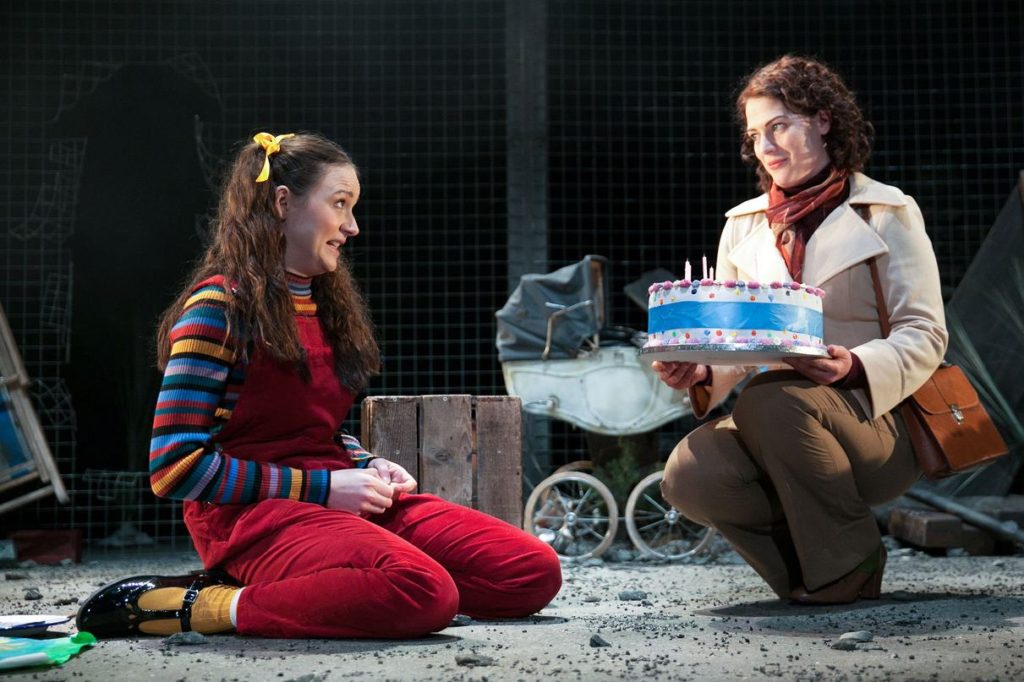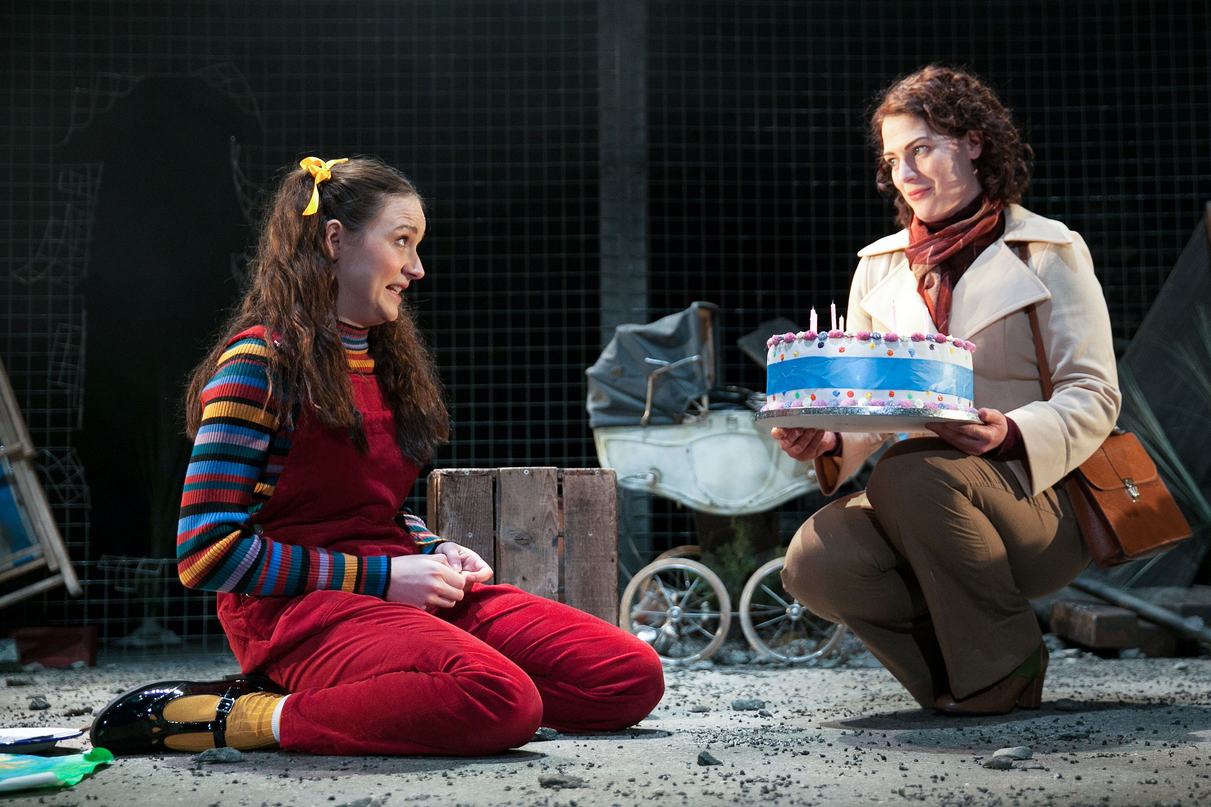
Four generations of women in the same family, two big secrets kept under wraps, Charlotte Keatley’s play serves as a metaphor for survival. It plots the relationships between mothers and daughters and the drives that pull them together and force them apart. Their ability to communicate meaningfully with each other remains a constant challenge as the world changes around them.
The play starts in a wartime waste ground. Four young girls gather to play out imaginary games. They like to scare each other with ideas of killing their mothers or summoning the dead or bragging about going to the ‘boys’ den’. Life itself seems a threat, yet full of possibility.
Judith Paris plays the ageing Doris Partington, a working-class girl from Oldham whose mum she discovers was illegitimate. We hear snippets about Jack, her deceased husband. Keatley’s skill lies in dropping crucial detail into everyday conversation, such as while Doris fusses over keeping a house clean, she retrospectively regrets her husband’s loss of sexual interest in her, “I missed being desired,” she sighs. Duty always to the fore, doing the right thing, usually at the expense of personal expression, keeping up appearances, trying to make something better, all becoms common struggles throughout the play.
Doris’s daughter Margaret leaves the family home to marry Ken (who we do not meet) and move to London. A year later (1952) she has her own baby, Jackie. The marriage isn’t a success, and soon Margaret is on her own. Her daughter Jackie grows up through the sexual ‘revolution’ of the 60s and soon she’s off up to Manchester to take an art degree. Her mother’s angst about her sexual freedom is in vain. Within a year Jackie too becomes pregnant and has a daughter, Rosie.
Living in a cold and damp Moss Side flat, with no partner to support her and no money, her mum strikes a deal with her. Margaret will take the baby to allow Jackie to finish her degree. She will raise Rosie as her own, and will keep the secret until the child reaches 16. It is this secret that powers the play forward and gives a nervy edge to the lives of these women, especially when in each other’s company.
Lisa Burrows plays Margaret, giving her a bustling practicality at the cost of empathy. Jackie Ritchie’s portrayal of the emotionally tattered Jackie, now free to explore a career in art but inwardly yearning for her abandoned daughter, lies at the epicentre of the play’s sense of angst. Her journey from impoverished student to suave gallery owner is very well portrayed, as is the belated joy of being in the company of her daughter and the ordeal of her secret revealed. Daughter Rosie is given ample teenage strop by the excellent Rebecca Birch, who very effectively winds up the guilt during the final heave of her mother’s admission.
Bek Palmer’s set is structured to appear like wartime waste ground, where old prams, boxes and rubbish is strewn under a wrecked building bordered by a damaged fence. Within the general rubbish will be significant objects that double later as key elements to the women’s lives as time progresses. An old piano that Doris polishes, for instance, or an old portrait of great grand-parents. Andy Grange’s lighting helps change the focus down onto more specific areas so that we can imagine smaller room settings for the action, or very effectively later, a stilted phone call between Margaret and her mum Doris.
There is a slow-burn feel to Keatley’s play. At certain points it seems too long, and at times, with its constant looking back, looking forward in time, can be slightly bewildering. But amongst some seemingly humdrum narratives lie sparks of emotional depth and revelation which makes for sustained reflection. ★★★☆☆ Simon Bishop 23rd May 2019
Photo by Sheila Burnett


